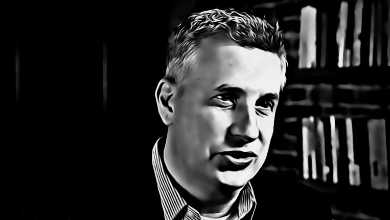Wisconsin Police: Volunteering for Defeat

There has been much discussion of winners, losers and the effect on public employee unions elsewhere in the US after the failure to recall Wisconsin Gov. Scott Walker. But there has been little comment on one group of unionized workers that were unaffected by public employee union reform, yet joined the losing side anyway. And not once, but on three different occasions.
When Gov. Walker first introduced his plan to eliminate public employee collective bargaining, automatic union dues deduction and require annual union recertification votes there were two notable exceptions: police and fire unions.
This exemption was a godsend and it would have been perfectly natural, and tactically sound, if Wisconsin police labor leaders had simply breathed a sigh of relief as the Angel of Death passed over their house on its way to visit AFSCME households.
Instead many police leaders shinnied up the downspouts so they could get on the roof and try to flag him down.
One expects this type of behavior from firefighters. They’ve always been more committed to labor “solidarity” and most probably know the words to “Joe Hill.” Firemen are accustomed to volunteering in political campaigns and charitable efforts. (Cops say it’s because firemen only work part–time.)
So when Wisconsin firemen began beating on drums in the state capital and protesting the reform legislation it was not surprising. (One unexpected side effect of the Migration to Madison was the absence of fire trucks blocking the curb at grocery stores and the welcome shortage of firemen brandishing boots in left turn lanes.)
Cops, on the other hand, don’t volunteer.
Part of the difference is attributed to how police and fire unions are organized. Firefighters are much more hierarchical, with the locals sending dues money up to the state and national organization, where spending decisions are made. Consequently fire locals usually have a shortage of money, but plenty of manpower.
Police unions are feudal. Many locals are independent baronies and keep all the dues money within city limits. Even those locals affiliated with the Fraternal Order of Police or other national organizations, still keep local dues money at home and remain politically independent. That’s why effective police unions (those with over 450 dues–paying members) usually have money for political action, and the disinclination to volunteer is not so damaging.
I’ve worked with police (and some fire) unions for over 20 years and aside from union officers, you get almost no rank–and–file participation. Clients have had to hire temporary workers to gather signatures for a police pay raise election because the officers wouldn’t volunteer.
Which is why it was so surprising to see all those motivated cops enjoying “mic check” communication and employing their decoupage talents on poster board.
Other public employee unions want the cops to join their campaigns because conservatives and taxpayers usually support police. Consequently, police participation can generate public approval.
Unfortunately for cops, labor “solidarity” usually runs in one direction. When is the last time you saw AFSCME members picketing city hall when some rabble–rouser accuses the police of brutality? How many times have public employee union leaders defended police officers accused of “racial profiling?”
The answer is never.
Gov. Walker treated law enforcement differently and police union leaders should have done their best to make sure the precedent continued. Instead of encouraging members to join a pointless and destructive protest in the capital, (the notable exception being the Milwaukee police union that stayed with Gov. Walker), officers should have been meeting with individual legislators to thank them and explain how law enforcement is the equivalent of domestic defense: a spending priority conservatives can and should support.
In Congress few if any members are calling for military pay cuts, reductions in health coverage and limiting pensions, even though the tail–to–teeth ratio in the military is much higher than it is in domestic law enforcement.
Police officers have a difficult and inherently dangerous job. Librarians are rarely shot down during the course of their duties and they almost never have to fight a patron when it’s time to pay an overdue book fine. Cops are faced with this possibility on a daily basis.
It makes sense for them to be able to retire after 25 years on the job, have access to comprehensive medical coverage before and after retirement and receive a hazardous duty pay differential, just like the military. What’s more, police unions, in stark contrast with other public employee unions, have fought to maintain strict hiring standards, extensive background checks and stringent physical qualifications.
Law enforcement, like national defense, is not an area where wise conservatives seek to cut corners. I doubt even the most frugal Tea party member would want to exchange US law enforcement for Mexico’s.
Fortunately for Wisconsin cops they have a chance to recover from their leadership’s serial errors. Currently there is no sentiment in the legislature to revisit public employee union reform or public safety employee status. Wise police union leadership should take advantage of this truce and seek to repair their relationship with Republicans.




